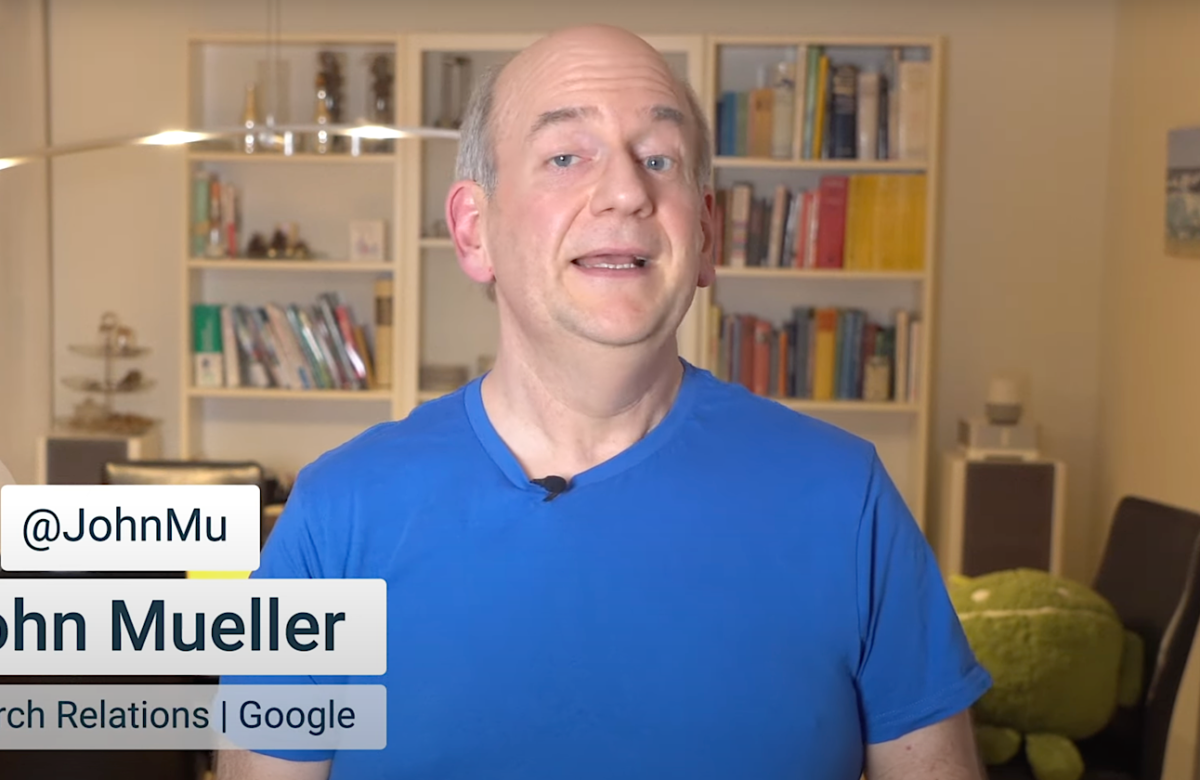
How to Do Keyword Clustering & Why It Helps SEO
- Digital MarketingNews
- May 7, 2023
- No Comment
- 187
[ad_1]
What Is Key phrase Clustering?
Key phrase clustering is the method of grouping related key phrases based mostly on search intent—i.e., what precisely the searcher is making an attempt to attain.
For instance, folks looking “king measurement mattress” and “king mattress” are buying for a similar kind of product. And Google shows related search outcomes.

Key phrase clustering is essential in search engine optimization as a result of customers can search for a similar web page in several methods. Figuring out all related phrases helps you optimize (and due to this fact rank) for a greater diversity of key phrases.
You need every web page to rank for its major key phrase. However you additionally wish to goal associated secondary key phrases, akin to:
- Synonyms (e.g., “king measurement mattress” and “king mattress”)
- Lengthy-tail variants (e.g., “king measurement mattress with field springs”)
Mattress Agency’s king mattress class web page ranks for greater than 1,800 key phrases. And attracts an estimated 197,800 natural (unpaid) U.S. visits per 30 days from Google alone.

You don’t want to optimize pages round key phrase clusters to get a number of rankings. However it may definitely assist.
Plus, utilizing related keywords in your content material might encourage you to cowl subtopics you hadn’t thought of earlier than. And may make your content material learn extra naturally. (Since you’re not repeating the identical key phrase again and again.)
Each of those components can enhance content quality. Which might result in higher rankings and engagement.
Key phrase categorization additionally offers you a fuller understanding of search engine optimization potential.
For instance, you may take a look at one key phrase and discover that the quantity (common variety of month-to-month searches) is low. So that you determine it’s not value your time.
However whenever you take associated key phrases under consideration (and mix their search volumes) by means of key phrase clustering, you discover that the search demand is way better.
Methods to Do Key phrase Clustering
Learn to do key phrase clustering, step-by-step:
Step 1: Construct a Key phrase Checklist
To do key phrase clustering, you want a listing of related key phrases.
Create this record by performing keyword research.
First find keywords by topic. Then fill gaps with competitor research.
Discover Key phrases by Matter
Carry out key phrase analysis utilizing Semrush’s Keyword Magic Tool. A free account offers 10 free searches (with as much as 10 outcomes every) per day.
To begin, enter a seed key phrase—a broad time period to base your search round. This ought to be a topical time period your target market makes use of. Maintain it easy to maximise the variety of key phrase outcomes.
Then, select your goal nation and click on “Search.”

The device offers “Broad Match” outcomes by default. These include your seed key phrase or a detailed variant. For instance, “sleep” would return key phrases containing “sleep,” “sleeping,” and “sleeps.”
Change to “Phrase Match” for outcomes that include your actual seed key phrase(s). Or use “Precise Match” for outcomes that include your actual seed key phrases within the actual order.
Tip: Filters can slim your search. However watch out to not exclude helpful outcomes. At this stage, collect as many related key phrases as attainable.

On the left-hand aspect, you’ll see a listing of the commonest key phrase modifiers (phrases that seem alongside your seed key phrase).
Click on a modifier to concentrate on outcomes together with that time period.

To exclude irrelevant outcomes, click on on the attention image alongside the modifier.

Save any goal key phrases. These are related key phrases that your target market makes use of and also you wish to rank for.
Tip: Not sure whether or not a key phrase is related? Use the “View SERP” icon to see what pages rank within the prime 10 search outcomes. When you’ve got an identical web page—or may create one—it’s a goal key phrase.

When you’ve got a Semrush trial or subscription, choose goal key phrases utilizing the verify packing containers on the left-hand aspect. Then click on “+ Add to key phrase record” to avoid wasting your key phrases to Keyword Manager.

Keep organized by making a separate record for every subject or subtopic.

Alternatively, observe related key phrases in a spreadsheet. Ensuring to incorporate the next knowledge:
- Intent: The kind of search intent (informational, navigational, business, or transactional)
- Quantity: The typical variety of month-to-month searches
- KD %: Key phrase issue rating, a measure of how arduous will probably be to rank organically within the prime 10 Google outcomes
Add and full a “Class” column, too. So you can begin the key phrase grouping course of.

Then, repeat this step for different seed key phrases (e.g., “sleep,” “mattress,” and “pillow”).
Fill Gaps with Competitor Analysis
Researching key subjects might help you discover the majority of related key phrases. However there are possible outliers—i.e., goal key phrases that don’t include any of the phrases you checked out.
The simplest solution to discover extra key phrases is to take a look at rankings of main rivals. Semrush’s Organic Research device makes it attainable.
Enter the area of a rival, choose your goal nation, then click on “Search.”
Tip: Analyzing prime performers ought to yield the very best outcomes. Analysis rivals that carry out effectively in your highest-difficulty key phrases. Or learn to find your top competitors with Semrush.

Then, go to the “Positions” report back to see your competitor’s key phrase rankings.

To exclude key phrases you’ve already added to key phrase clusters, go to “Superior filters.” Then apply the next situation for every seed key phrase from earlier: “Exclude Key phrase Containing [Seed Keyword]”
Like this:

Add any related outcomes to your key phrase record. This could plug a lot of the gaps, however you may repeat with as many rivals as you want.
Step 2: Categorize Your Key phrases
Earlier than studying learn how to do key phrase clustering, first perceive what makes an efficient key phrase cluster.
Most significantly, grouped key phrases ought to have the identical search intent.
You could have an intuitive understanding of search intent. Nevertheless it’s not at all times clear. Begin by trying on the key phrase’s search engine outcomes web page (SERP). And referencing the search intent kind:
- Informational: Customers wish to study extra about one thing (e.g., “mattress dimensions”)
- Navigational: Customers wish to discover a particular web page (e.g., “Ikea mattress”)
- Business: Customers wish to do analysis earlier than making a purchase order choice (e.g., “greatest mattress”)
- Transactional: Customers wish to full a particular motion, akin to a purchase order (e.g., “purchase mattress”)
For instance, discover the delicate distinction between “king mattress measurement” and “king measurement mattress.” The primary searcher is searching for measurements (informational intent).

The second is searching for merchandise (business intent).

Google’s pure language processing algorithms can decide up on these sorts of nuances. It’s best to, too.
Typically, it’s tough to know the way a lot segmentation is required.
For instance, do you have to mix “king mattress dimensions” and “queen mattress dimensions” into the identical cluster? What about “king mattress” and “king reminiscence foam mattress”?
To find out the very best method, contemplate three components:
- SERP similarity: Do the identical pages rank effectively for each key phrases? In that case, it’s most likely greatest to cluster the key phrases.
- Content material high quality: May you create high-quality content material for each pages? If separate pages can be too skinny, mix the key phrases. If a mixed web page can be too broad, separate them.
- Person journey: Will the common person wish to discover each subjects on the similar time? In that case, preserve all of the content material on one web page.
Now, let’s start the key phrase clustering course of.
Choose any key phrase out of your record, categorize it, then construct your first key phrase cluster round it.
Let’s use our “king mattress measurement” key phrase to begin a “king measurements” cluster.
In Key phrase Supervisor, you may categorize key phrases utilizing tags. Hover over the key phrase and click on “+ Add tag.”

Then, enter a tag title (e.g., “king measurements”) and click on the verify icon.

For those who’re utilizing a spreadsheet as an alternative, create a “Class” column.

Subsequent, discover different phrases to affix this key phrase cluster—phrases with the identical search intent.
Use filters to your benefit. On this instance, search for key phrases that include the time period “dimensions.”

Add the related key phrases to your group utilizing your tag.

Or tag key phrases in bulk utilizing verify packing containers:

If you’ve captured the majority of related key phrases, transfer onto the subsequent key phrase cluster.
Choose a brand new (untagged) key phrase. And begin the method once more.
As soon as nearly all of your key phrases are categorized, type by means of the stragglers. You’ll be able to most likely apply current tags to a lot of them.
And ensure to mix clusters as acceptable. For instance, “king measurements” and “queen measurements” might be focused collectively in a “mattress sizes” cluster. (To later turn into a mattress measurement information.)
For the needs of this information, we’ll follow our “king measurements” instance.
Step 3: Plan Your Key phrase Technique
When you’ve completed key phrase grouping, apply a filter to view a cluster. Then, plan the way you’ll goal these key phrases.

First, select and tag the major key phrase—the principle key phrase you wish to rank for. Base your choice on search intent and the next metrics:
- Quantity: The typical variety of month-to-month searches
- KD %: How tough will probably be to rank organically within the prime 10 Google outcomes
Increased rankings usually produce extra clicks. So it is perhaps higher to prioritize a lower-difficulty key phrase, even when it has a decrease search quantity.

All the opposite key phrases in your cluster are secondary key phrases, by extension.
Subsequent, verify whether or not you may have a web page that would fulfill this key phrase cluster’s search intent. (On this case, a mattress measurement information.)
- If sure, optimize the prevailing web page
- If no, create and optimize a brand new web page
Create a process in a spreadsheet or different device. Ensuring to notice the goal URL and key phrase cluster.
Then repeat in your different key phrase teams.

Additionally observe the next key phrase cluster metrics, which you could find in Key phrase Supervisor:
- Whole quantity
- Common key phrase issue
- Major key phrase quantity
- Major key phrase issue

For those who’re utilizing a spreadsheet, you’ll must calculate complete quantity and common key phrase issue utilizing a pivot table or components. AI instruments akin to Excel Formula Bot might help.

Lastly, prioritize your to-dos based mostly on enterprise objectives and assets. Additionally contemplate the web page’s search engine optimization potential.
In our instance, it is smart to concentrate on the “king measurement mattress” key phrase cluster earlier than the “king measurements” cluster. As a result of:
- Optimizing a web page is faster and simpler than making a web page
- Whole quantity and first quantity are larger (indicating larger site visitors potential)
- Common key phrase issue is decrease (indicating higher rating potential—though major issue is larger)
- Folks visiting the product class web page are decrease within the purchase funnel (and due to this fact extra possible to purchase) than folks visiting a measurements information

Step 4: Optimize or Create Content material
Able to create or optimize content material round one among your key phrase clusters?
The next are among the most essential on-page SEO techniques:
- Embody the first key phrase within the URL slug, title tag, meta description, and H1 tag
- Point out the first key phrase throughout the first paragraph of physique content material
- Naturally embrace major and secondary key phrases all through your physique content material
- For those who can’t embrace secondary key phrases in full, use distinctive phrases from them (e.g., should you can’t match “mattress dimensions,” attempt to at the very least use “dimensions”)
- Use secondary key phrases inside subheadings, the place acceptable
- Add internal links to associated pages (e.g., from the king mattresses product class web page to the mattress measurement information)
Tip: To study extra about inner linking between associated pages, try our information to topic clusters.
For instance, right here’s a search end result for Amerisleep’s mattress measurement information.
Discover references to “mattress sizes” and “dimensions” within the title tag. The meta description consists of key phrases and particular measurements.

Right here’s a bit of the optimized information.
Amerisleep has added key phrases to the subheading and physique content material. And linked to extremely related pages.

For extra steering, use Semrush’s SEO Content Template. The device offers content material suggestions based mostly on the highest 10 Google outcomes in your goal key phrases.
Enter all of the phrases from the key phrase cluster you’re engaged on. Then, choose your location and machine and click on “Create content material template.”

You will note suggestions for readability, textual content size, and extra.

Plus, you may see how prime rivals use key phrases of their content material.

To begin writing, go to “Actual-time Content material Examine.”

Then, “Open in search engine optimization Writing Assistant.”

The SEO Writing Assistant scores your search engine optimization, originality, tone of voice, and readability in actual time. For those who get caught, use the built-in AI to compose or rephrase content material.

Don’t overlook to repeat these steps in your different key phrase clusters.
Step 5: Monitor Your Key phrase Rankings
Monitor your rankings to see whether or not your key phrase clustering technique works. For those who don’t set up or enhance rankings for goal key phrases, take corrective motion. By reviewing your search engine optimization techniques.
With Semrush’s Position Tracking device, you may monitor key metrics for particular person key phrases and key phrase clusters.
For those who’re utilizing Key phrase Supervisor:
Begin by opening a key phrase record.

Click on “Ship to different instruments” after which “Place Monitoring.”

Select an current venture or create a brand new one. Then, click on “Ship key phrases.”

When you’ve got extra key phrases to export, click on “Return to Key phrase Supervisor” and repeat the earlier steps. In any other case, click on “Go to Place Monitoring.”

To see rankings (and different metrics) for particular person key phrases in Place Monitoring, open the “Overview” report.

Then scroll all the way down to “Rankings Overview.”

To see common rankings (and different metrics) for key phrase clusters, open the “Tags” report.

Then scroll all the way down to “Tags Overview.”

In case your key phrases are saved in a spreadsheet:
Make sure that your key phrases are within the left-hand column, then save as a CSV file.

Subsequent, undergo the Position Tracking setup process. Make sure that to import your key phrase file.

When you’re completed, you may view your key phrase rankings within the “Overview” tab.

To watch metrics for key phrase clusters, group your key phrases utilizing tags.
Choose associated key phrases utilizing verify packing containers, then click on “Actions” > “Add Tag.”

Enter your class title, then click on “Apply.”

Then, go to the “Tags” report back to see metrics by key phrase cluster.

Tip: Not getting the rankings you need? Try our on-page SEO checklist for actionable recommendation.
Goal Key phrase Clusters with Semrush
Semrush has all of the key phrase clustering instruments it’s essential to set up and enhance rankings:
- Discover key phrases with Key phrase Magic Instrument and Natural Analysis
- Categorize key phrases in Key phrase Supervisor
- Create optimized content material with the Content material Advertising Platform
- Monitor search engine optimization efficiency in Place Monitoring
Create your free account to get began.
[ad_2]
Source link












